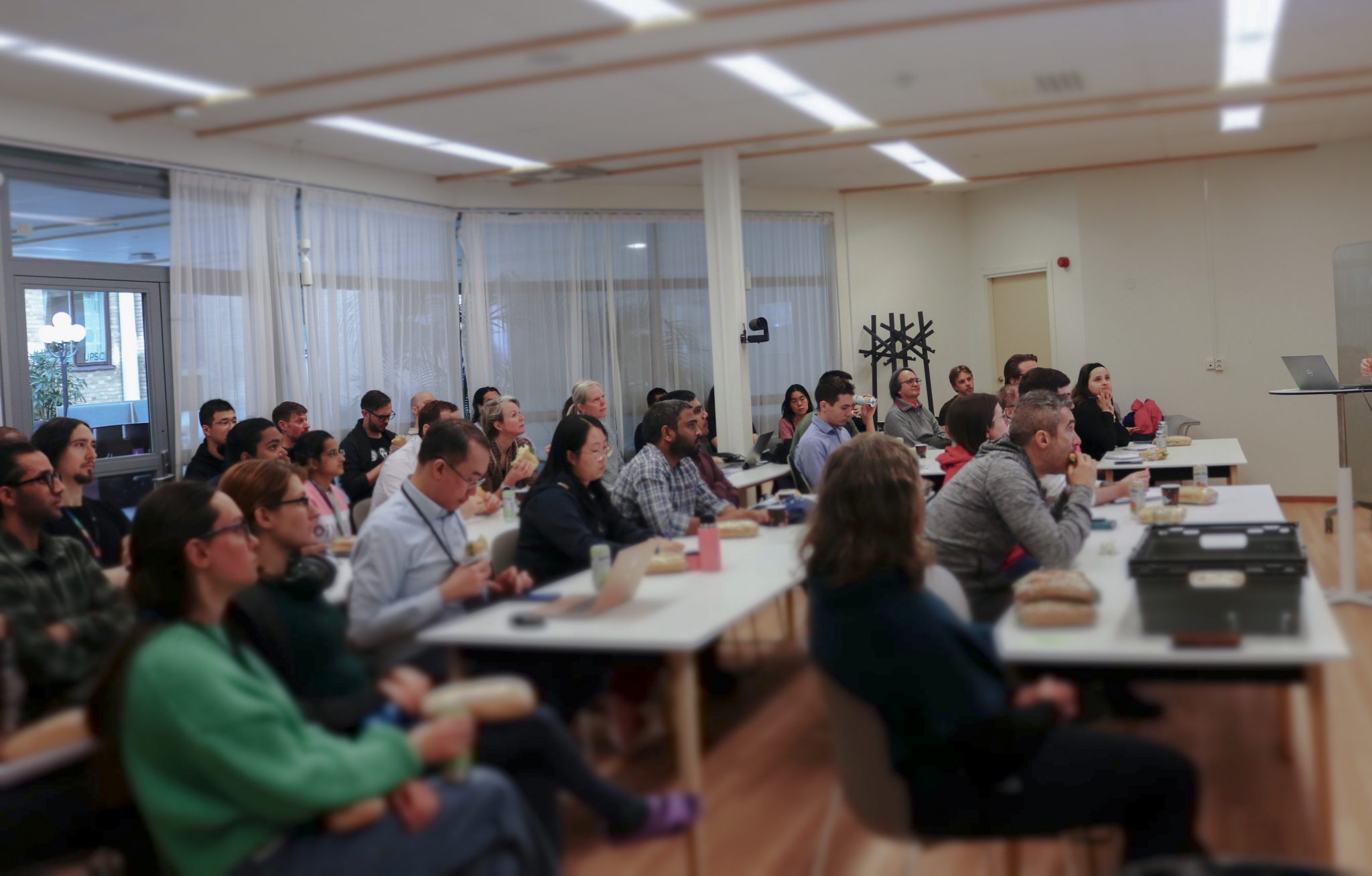[The Svedberg seminar] Combining artificial intelligence approaches and cellular screens to define functional regulatory variation in mammalian genomes
June 3 @ 15:15 – 16:15 CEST
James Prendergast
Professor
Roslin Institute, University of Edinburgh- UK
Bio
James Prendergast is professor of bioinformatics at the Roslin Institute in Edinburgh. His academic journey began with a focus on the genetics of colorectal cancer during the early days of genome-wide association studies, leading to a PhD in Bioinformatics and Statistical Genetics from the University of Edinburgh in 2007.
After completing his PhD, James held post-doctoral positions at the European Bioinformatics Institute and University College Dublin, before joining the Human Genetics Unit at the University of Edinburgh. In 2013, he transitioned to livestock research, first joining the Roslin Institute on a career-track fellowship.
Through his career, James has been part of several international consortia, including the FAANG BovReg project, Bridget, FANTOM, and the Bovine Pangenome Consortium. These collaborations have allowed him to continue to work across both human and livestock genetics research.
Combining artificial intelligence approaches and cellular screens to define functional regulatory variation in mammalian genomes
Despite significant progress, the exact genetic variants that influence crucial mammalian traits and phenotypes often remain unknown. This uncertainty presents a significant challenge to the enhancement of livestock health and production through cutting-edge genomic approaches like genome editing. While predicting functional coding variants is comparatively straightforward, it is suggested that regulatory variants are the primary drivers of phenotypic differences between individuals. In this talk, I will delve into our efforts to bridge this knowledge gap by integrating novel cellular screen datasets and AI workflows to predict functional regulatory variants in mammalian genomes. This includes the pioneering application of the Survey of Regulatory Elements (SuRE) approach to cattle, where we have scrutinized the regulatory impact of tens of millions of cattle variants, while effectively eliminating the confounding effect of linkage disequilibrium that hampers other methodologies. I will demonstrate how these strategies can not only effectively prioritize regulatory variants in both humans and cattle, but also identify those variants associated with significant phenotypes in each species.
Host: Gabriella Lindgren, SLU and Jennifer Meadows, UU


